
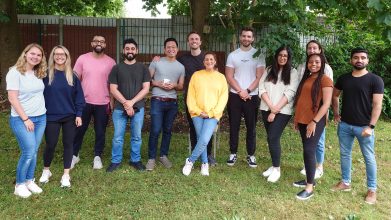

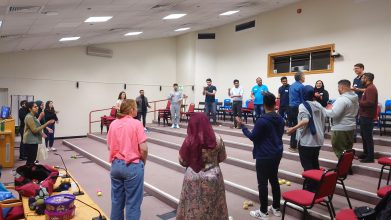


ST3 teaching is delivered on the “Day Release Course (DRC)” throughout your ST3 year. It is split into two halves, much like ST2, meaning that you can start in September or February and have the same experience. In ST3, we run some sessions twice to account for different stages of training, but most sessions are held together in one group. The Day-Release Course in Bolton runs on Wednesdays between September and July each academic year, with breaks at the traditional longer Christmas & Easter school holidays.
Sessions are based around group work, focussing on consultation skills required for both MRCGP examinations and life as a post-CCT GP. We use a variety of teaching styles and promote self-directed learning in preparation for post-qualification. This sounds boring, but we generally have a lot of fun on Wednesdays, giving us the (hopefully affectionate) nickname of “play school” by many local GP trainers.
Location
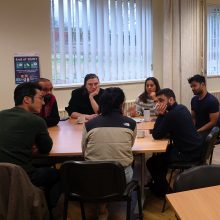

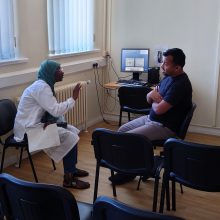
Teaching usually takes place in Seminar Room 1 or 2 at the Royal Bolton Hospital Education Centre. Postcode is: BL4 0NB. Parking is available on site, with payment required before exit. There are toilets, a fresh water cooler, vending machines, hot water, NHS WiFi and a library on site. A quiet room can often be arranged and at designated times of the year we arrange space for prayer, although the multi-faith facilities of the main hospital site are also available.
We will also have sessions online using Microsoft Teams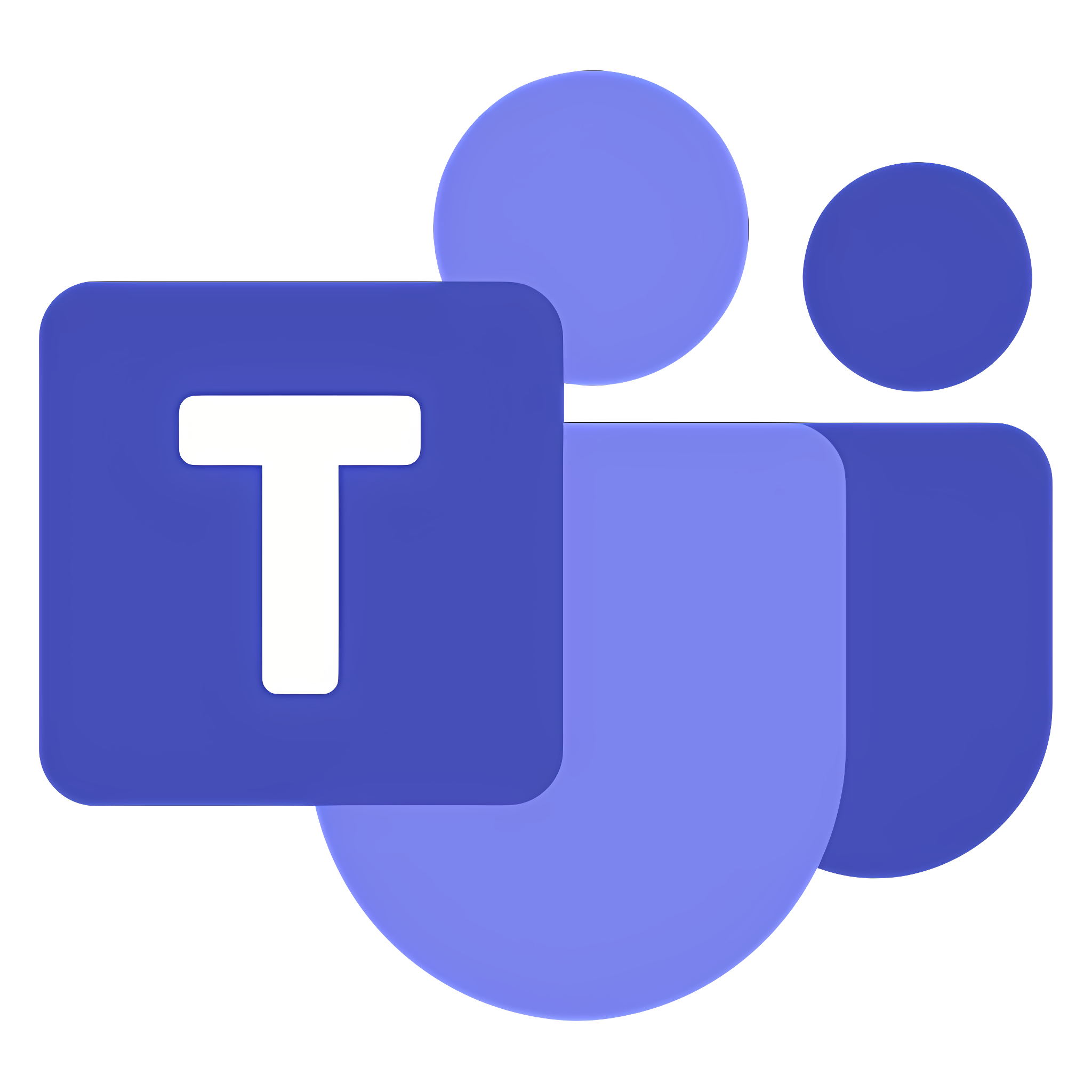 and Zoom
and Zoom  , and we ask that you download the relevant software in advance to your home devices to facilitate this. An nhs.net email address should be assigned to you by your host practice (ask for one if not) which will allow full functionality when using Teams.
, and we ask that you download the relevant software in advance to your home devices to facilitate this. An nhs.net email address should be assigned to you by your host practice (ask for one if not) which will allow full functionality when using Teams.
Advance Sign-Up
A few sessions will require advance sign-up due to either limited capacity, catering or for planning purposes. These will be indicated nearer the time and links activated here.
Requirements
Please bring the following to sessions:
- A pen and paper/workbook for recording feedback during group work sessions
- A tablet/laptop may be preferred for this purpose, but be aware that there are relatively few electrical outlets for charging
- Lunch or money to buy from nearby hospital/local shops.
- Please note that unfortunately we do not have refrigerator or microwave facilities, but hot water is available
- Cash or card to pay the car parking charge (which you can claim back from the Lead Employer)
- A curious and enthuastic attitude
- Baked goods, snacks and food to share in the group is always welcome!
Attendance
An ST3 resident doctor job plan will include educational time for attendance at this full-day (0900-1700) event each week, and the North West Deanery expects attendance in line with professionalism standards that are reviewed at your ARCP. Less-than-full-time resident doctors should attend the proportion of Wednesday sessions in line with their job plan.
Attendance is defined as arriving in time for the advertised session start time, actively participating in sessions held, and no departures before the end of advertised session times.
- Morning Sessions start promptly at 0930, with hot drinks available from 0900. Morning sessions will finish by 1230.
- Afternoon sessions will start no sooner than 1230 and will usually be finished by 1530 unless otherwise stated.
- One hour of each morning/afternoon session time is allocated to give feedback on sessions and to complete a portfolio entry reflecting on what has been learned, which forms the official record of attendance. We will also usually reference resources to explore in this time outside the group sessions.
- A register of attendance is taken by the education team to track attendance in order to identify and support resident doctors. This will be taken at the start of sessions and late arrivals will not be recorded. However, resident doctors can still reflect in their portfolio on the session as evidence of attendance
- Resident doctors should take annual/study/professional leave (as appropriate) and in agreement with their host practice policies. Leave should broadly conform to the same 70/30 clinical/educational split that work hours are defined by.
- Resident Doctors are reminded of the relevant Lead Employer policies on attendance and absence; our own policy is viewable here.
Timetable
Here is the provisional timetable for Wednesday sessions, please note, at this stage, there may be changes to rooms or sessions. Sessions will run in all allocated slots, however.
Timetable last updated:
| Date | Morning Session All/Aug 2025 Starts 0930-1230 | Morning Session pre-Aug 2025 starters only 0930-1230 | Afternoon Session All 1230-1530 |
|---|---|---|---|
| 13 Aug 2025 | in practice | SCA Practice Session | no session |
| 20 Aug | in practice | SCA Practice Sesison | no session |
| 27 Aug | in practice | SCA Practice Session | no session |
| 3 Sept | ST3-A Intro session | ST3-A Intro session | ST3 Planning including 1:1s with Bolton Education Team session finishes at 1630 |
| 10 Sept | SCA Practice with First5 GPs | SCA Practice with First5 GPs | How the SCA works with an RCGP Examiner |
| 17 Sept | The Art of Critique & How to Give/Receive Feedback | SCA Practice Session | ST3-Led Session: Semester Planning |
| 24 Sept | Online Video Timed Consult Practice  | Online Video Timed Consult Practice  | ST3-Led Session: Consultation Models  |
| 1 Oct | How to Prepare for SCA Great Explanations | How to Prepare for SCA Great Explanations | ST3-Led Session: Great Explanations |
| 8 Oct | Beyond Labels: Understanding Why Patients (and Doctors) Act as They Do | Beyond Labels: Understanding Why Patients (and Doctors) Act as They Do | Resilience for GPSTs |
| 15 Oct | SCA Practice with Actors | SCA Practice with Actors | ST3-Led Session |
| 22 Oct | SCA Practice Session | T2GP: Positive Practice & Accepting Imperfection | ST3-Led Session |
| 29 Oct | SCA Practice Session | T2GP: Doctor-Efficient Consulting & Triage | ST3-Led Session |
| 5 Nov | no session | no session | no session |
| 12 Nov | Wellbeing Day (sign up here) (at Bolton Octagon) | Wellbeing Day (sign up here) (at Bolton Octagon) | Wellbeing Day (sign up here) (at Bolton Octagon) session finishes at 1630 |
| 19 Nov | PRiME | PRiME | ST3-Led Session |
| 26 Nov | How to… Leadership, Prescribing & ST3 WBPA | How to… Leadership, Prescribing & ST3 WBPA | ST3-Led Session: Presentations 1 |
| 3 Dec | Focussed Clinical Examinations | Focussed Clinical Examinations | ST3-Led Session: Presentations 2 |
| 10 Dec | Urgent & Unscheduled Care Cases | Urgent & Unscheduled Care Cases | BLS/AED/Anaphylaxis Training (sign up here) (N Block, Resus Skills) |
| 17 Dec | Building Bridges | Building Bridges | AMA with the Education Team |
| 24 Dec | no session | no session | no session |
| 31 Dec 2025 | no session | no session | no session |
| 7 Jan 2026 | Practical Ethics | Practical Ethics | Leadership/Prescribing Projects |
| 14 Jan 2026 | Adult Safeguarding | Adult Safeguarding | Leadership/Prescribing Projects |
| 21 Jan 2026 | Child Safeguarding | Child Safeguarding | Child Safeguarding |
| 28 Jan 2026 | Active Bystander | Active Bystander | Active Bystander |
| 4 Feb 2026 | no session | no session | no session |
| Date | Morning Session | Morning Session | Afternoon Session |
In the first few weeks of the day release programme, we run two concurrent courses depending on what stage of ST3 you are in. For those new to ST3, you should attend the SCA course sessions. Those who are already ST3 should attend the Trainee to GP (T2GP) Course. Both courses occur twice a year so all ST3s will get to experience the sessions.
Sessions with no description are not scheduled teaching sessions and you should arrange your own educational activity for these times, in line with your individual job plan.
Please be aware that sessions may need to change at short notice due to presenter and room availability – we will inform trainees by email if this is the case.
Please attend sessions ready to start at the advertised time in line with our attendance policy. Repeated late attendance will be be flagged as a cause for concern.
Each session is mapped to the Areas of Capability (AoC) in the RCGP Curriculum (see the AoC column for details) to help guide your reflective portfolio entries. We strongly recommend making a portfolio log for each session you attend.
ST3 Courses
| SCA Preparation Course (SCA Prep) | |
| 1 | How to Approach the SCA (Ian Hamer, RCGP) |
| 2 | Online Timed Video Consult Practice |
| 3 | Case Roleplay with First5 GPs |
| 4 | SCA Examiner Skills: Critique and Benchmarking Exercise |
| 5 | Consultations with Actors |
| Trainee to GP Course (T2GP) | |
| 1 | Positive Practice |
| 2 | Accepting Imperfection |
| 3 | Doctor-Efficient Care |
| 4 | Triage |

Areas of Capability
Teaching sessions are mapped to the following Areas of Capability to help you complete your portfolio of evidence for ARCP/CCT.
- Fitness to practise – the doctor’s awareness of when his/her own performance, conduct or health, or that of others, might put patients at risk, and taking action to protect patients
- Maintaining an ethical approach – practising ethically, with integrity and a respect for diversity
- Communication and consultation skills – communication with patients, and the use of recognised consultation techniques
- Data gathering and interpretation – for clinical judgement, choice of physical examination and investigations and their interpretation
- Clinical examination and procedural skills – competent physical examination of the patient with accurate interpretation of physical signs and the safe practice of procedural skills
- Making a diagnosis / decisions – a conscious, structured approach to decision making
- Clinical management – recognition and management of common medical conditions in primary care
- Managing medical complexity – aspects of care beyond managing straightforward problems, including management of co-morbidity, uncertainty, risk and focusing on health rather than just illness
- Working with colleagues and in teams – working effectively with other professionals to ensure good patient care, including sharing information with colleagues
- Maintaining performance, learning and teaching – maintaining performance and effective CPD for oneself and others
- Organisation, management and leadership – an understanding of the use of computer systems to augment the GP consultation and primary care at individual and systems levels, the management of change, and the development of organisational and clinical leadership skills
- Practising holistically, promoting health and safeguarding – operating in physical, psychological, socioeconomic and cultural dimensions, taking into account feelings as well as thoughts
- Community orientation – management of the health and social care of the practice population and local community
Page last reviewed: 19 January, 2026